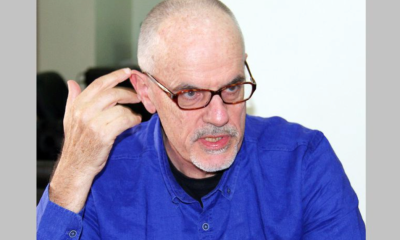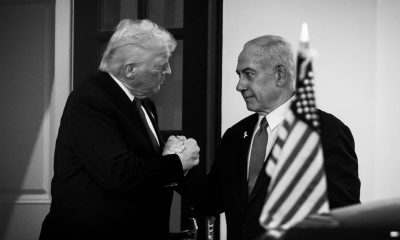World news
Islam, “world religion” through the creation of a transcendent religious community
The political significance of religion in international politics, which had been fading since the beginning of the 17th century, has experienced a resurgence in the late 20th century, aided by the process of globalization. This is because globalization has created conditions where nations can convey their civilizational message and cultural voice using information technology, communications, and instrumental capabilities. Thus, weaker voices gain power, and their message reaches the world. In these conditions, Islam, as a system of religion, social, and cultural significance, attempts to transform itself into a “world religion” by creating a transcendental religious community. Being in line with the complete attention to the requirements of the time and the divine promise that “human nature, receptive to divine promises and tidings, is not limited to a specific time and place, and man is a universal being”, Islam can serve as a suitable alternative for addressing current global challenges and providing its comprehensive moral system. Hynes believes that Islam, as a religious, social, and cultural system, has tried to become a “world religion” through the creation of a transcendent religious community.
Globalization encompasses two discourses: top-down globalization and bottom-up globalization. Top-down globalization seeks to expand modernity values such as secularism and cultural consumerism, leading to cultural homogenization. In contrast, bottom-up globalization, or what Giddens refers to as “reverse globalization,” confronts the ideologies of Western capitalism, the dominant trend in the contemporary world, and the economic dominance of multinational corporations. Social movements born in response to globalization are seeking broader global justice. From this perspective, globalization provides an opportunity for presenting opposing ideas to top-down globalization and gives voice to discourses and ideas that cannot be disseminated within human societies. Thus, Islamic and Shia cultures can prosper, and, through globalization, intellectuals have the opportunity to hear and discuss the philosophical, political, economic, and sociological ideas of Shia Islam. Considering the capacity of Shia Islam to respond to the challenges of the new world and its adherence to the universal values of the Islamic religion, globalization can create suitable opportunities for introducing Shia Islamic thought to the world.
The pace of political globalization is slower than other dimensions of globalization, and this is due to the hidden sovereignty that states hold for themselves, creating obstacles to the globalization of politics. Nevertheless, many issues that were previously within the realm of domestic affairs and the jurisdiction of states have now taken on global dimensions. Furthermore, in the era of media and electronic communications and access to platforms, new patterns, and the capacity for explaining and predicting future global events and crises, have changed. In general, the political aspect of globalization reduces the role of nation-states and increases the role of corporations and transnational organizations. In global politics, national governments are gradually relinquishing control, management, and authority, and their oversight of domestic forces diminishes. The agents of political globalization are the states themselves, which, through voluntary participation in networks and transnational organizations, initiate internal weakening and increase the dominance of central countries over themselves.
The crucial issue is that national sovereignty, which forms the foundation of the nation-state model, has been influenced by the process of globalization, and some of its requirements have been lost, giving rise to a new concept of governance that differs from its previous meaning. It is no longer possible to view the events happening in Europe, America, or Japan as separate from the economic troubles of other countries. It is no longer possible to label the attack on the Twin Towers in New York as solely an internal matter of the United States or to consider the crises in Iraq, Palestine, and Afghanistan as confined to specific regions. Nor can America’s environmental policies be viewed separately from what happens in other parts of the globe. In this sense, national sovereignty has eroded, and common interests have emerged that go beyond national divisions. This leads to a global responsibility and compels national governments to adhere to specific global policies and agendas. Alvin Toffler believes that the most significant transformation of the 21st century is the emergence of powers beyond governments and nation-states. In globalization, the perspective on power, contrary to the traditional top-down approach, has evolved differently, and hard power has to some extent lost its control, function, and legitimacy. Multiple actors present in the global arena lack violent means or the ability to exert control, yet they have become significantly more influential. Moreover, transnational social movements can be seen as powerful agents in the global society. They can exert pressure on governments, supranational political entities, and transnational policies, such as multinational corporations.
In the realm of global political opportunities, the idea of global governance has always been present in the political culture of Islam. It is believed that Islam, as it transcends borders and focuses on the community, inherently carries a global perspective. Therefore, Muslims believe that Islam is a global religion with a global mission. In this regard, Quranic verses have foretold the globalization of the Islamic faith and the formation of a global Muslim community.
From the perspective of Shiite political Islam, Islamic teachings, address the reasonable and innate human desires regarding justice, global management, meeting the spiritual and material needs of humans, giving individuals independent identity, preserving human dignity, resisting dictatorial regimes, and providing a suitable platform for globalization. They can use their soft power resources while considering their values to make components of Shiite Islamic philosophy in the fields of philosophy, politics, economics, and sociology heard and, concerning Shiite Islam’s capacity to respond to the issues of the modern world and the universal values of the Islamic religion, can create suitable opportunities for introducing Shiite Islamic thought. It is based on this framework that the position of Shiite political Islam has shifted from the periphery to the center of global development. Shiites, who have always been in the minority and have faced persecution for centuries, have now presented Shiite culture as a culture of resistance and jihad against the culture of power and dominance, which has turned into a global discourse and acts as an inspiring socio-political phenomenon today.
In conclusion, alongside the opportunities that globalization can offer to different societies and cultures, it will undoubtedly pose challenges. In general terms, it can be stated that the challenges of globalization primarily revolve around the global spread of Western cultural, political, and economic values and patterns. This, in turn, confronts other societies with identity and political challenges. In this regard, the approach of Shiite political Islam, given its conflicts with Islamic beliefs and values with the economic, political, and cultural liberalism in the process of globalization, faces a situation full of challenges. This is because it emphasizes its specific cultural indices in the face of globalization, which are rooted in the cultural infrastructure of other social structures. Furthermore, a significant part of culture consists of the value system, norms, and beliefs of the religious system of society and is in serious conflict with the universal beliefs of liberalism that are put forward in the process of globalization. Thus, globalization seeks to impose a materialistic and pragmatic behavior pattern on other societies.

You may like
-


Islamophobes have achieved fame and fortune from criticizing Islam and Muslims
-


There was no such thing as humanitarian terrorists, analyst said of The White Helmets
-


‘U.S.-Israel-Saudi Arabia coalition in Mideast is the latest Axis of Evil’
-


The most annoying behavior of travelers
-


are you boared ?
-


SURA 1. Fatiha, or the Opening Chapter


Islamophobes have achieved fame and fortune from criticizing Islam and Muslims

There was no such thing as humanitarian terrorists, analyst said of The White Helmets

‘U.S.-Israel-Saudi Arabia coalition in Mideast is the latest Axis of Evil’

The Overwhelming Event. سورة الغاشيه

SURA 71. Nuh, or Noah






